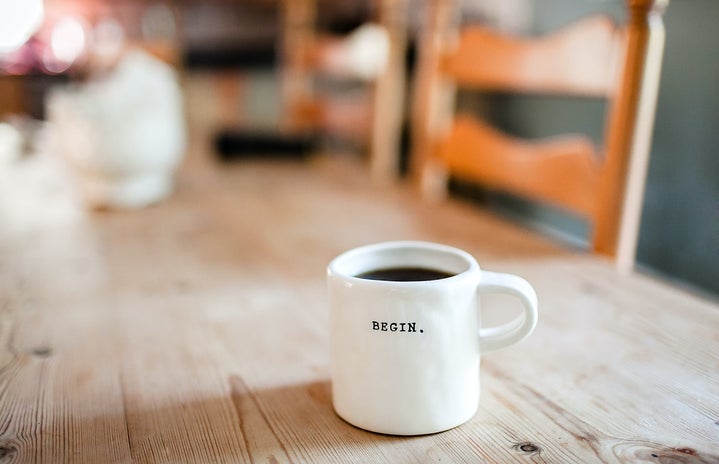Gabrielle Markel ‘17 is a proud Alaskan, nature-lover, and all-around outdoorswoman: I first met her when she led my WOOLF (freshman orientation) backpacking trip. Last summer, Gabby experienced a unique and challenging situation when she met one of Alaska’s least friendly residents.
On August 3rd, Gabby was running with a co-worker behind the wilderness lodge where she was working as a cook when when she came face-to-face with a grizzly bear. She recalls the violent encounter:
“So, we were running a mile up the trail, and I came around a corner on my right – the brush was really high, I couldn’t see anything– and this grizzly bear ran out of the brush and hit me on my left side, which is why the left side of me looks worse than the right side of me. I actually think that as far as bear maulings go, this bear mauling went better than pretty much anybody’s bear mauling ever. Ha! I feel like the worst part of any bear interaction is the part where you have to make conscious decisions– oh, it’s 25 feet away, is it gonna bluff-charge me? Do I run? (no, don’t run, ever.) Do I back up? When you need to be thinking about it. But I had zero time to think about it at all, and I did not have any choices. One of the things I like to emphasize when I tell this story is that although I am happy with the way that I reacted… but at the end of the day I didn’t really have choices, and there wasn’t room for me to do anything other than what I did, and I’m pretty sure anyone else in my situation would have done the same thing, because there just weren’t a whole lot of options.
I honestly don’t even know if I saw it– it’s really hard for me to tell. I have an image in my head of a really large brown bear, and seeing it for a second coming at me, but I feel like that could just also be pictures of brown bears I’ve seen from magazines. Maybe I didn’t see it at all. It hit me first, threw me backwards…”
Gabby’s co-worker ran for help while the bear was still on top of her. Despite suffering a laundry list of tooth and claw injuries– including a broken, severed tricep, and temporary vision loss in one eye, –she managed to walk a half-mile back toward the lodge before the returning staff members found her. Gabby was then ferried across the lake to the nearest road and airlifted to Anchorage. Despite her injuries, she returned for the Fall semester with her positivity and gratitude intact.
Inspired by the humor and perspective with which Gabby relates this story, we caught up with her about her experience last semester, lessons learned, and plans going forward.
CP: How has this experience impacted you, both in the short term and now looking back after a semester?
GM: I think that in the beginning, it just impacted me as a matter of physicality, because I was here and I wasn’t supposed to be here– I was supposed to be in India, so that was obviously different, and everything kind of got shaken up a little bit, I got the last free single on campus, I wasn’t really taking classes that I would have taken in a different context and I was trying to take easy classes because I was still concussed the first month I was here.
I think I came into last semester trying to think about it very much as an opportunity to have a different experience here– not that I haven’t had good experiences here, I love Williams, but I saw it as an opportunity to spend time with new people– a lot of my friends are abroad– and spend some time investing myself in things that weren’t sports, because I couldn’t work out for a couple of months. So yeah, it was different, mostly in positive ways. One of the most positive things was that because most of my friends were gone, it made me reach out to a lot of people who were in the acquaintance/vague friends-pool and actively try to spend more time with them, which is something that can be hard to do here. Especially when I’m in season since it can be really easy to spend all my time with the team and with people I have class with. When there are people who you know you want to have more in your life but they aren’t there naturally, it can be hard to prioritize when we have a thousand other things we’re supposed to be prioritizing– or feel like we are.
The first couple months I was back, I was just so happy to be back– I wasn’t 100% sure that I would be able to be here, there was a small chance I would have to take a gap semester, which I’m sure would have been fine, I’m sure I would have found something interesting to do, but sitting in my bedroom last September, I’m not sure I’ve ever wanted to leave Alaska as much as I wanted to leave Alaska last September. I was just so over it [laughs]
At this point, it feels like something that’s very far away, and this semester feels a lot like it was the first two years I was here. I like to think I’ve gained some perspective, but perspective I think is one of the hardest things to hold onto here. I think one of the most challenging things about Williams is keeping perspective– having any at all, but being able to hold onto it outside of the daily grind of crisis-to-crisis kind of thinking. Coming in last semester, I had a pretty big wake up call as to what my priorities were and what I wanted to be doing with my time, and I think that’s something that I was very lucky to be exposed to. But it’s not something that hangs around: you have to work hard to live with a sense of gratitude, and discipline yourself to not get caught up in the constant rush. Here, when people struggle with things, I think they’re allowing themselves to view little tiny things under a magnifying glass– all they have to do is take 10 steps backwards and be like, Oh wait, this is ridiculous. So at this point I think it’s something I know I’m capable of living my life with. I definitely think it can be easier to get all wrapped up in Williams than to really deliberately do what you want to do and do what makes you happy.
CP: Is there anything specifically that helps you keep that perspective?
GM: I don’t know if I’ve figured that out yet– it’s kind of a work in progress. This is sort of just getting into Gabby-life-philosophy: one of the main things that I think is really important is choosing to do things that make me happy and are best for me. It’s easy to see that as selfish or kind of self-centered, but at the end of the day, there isn’t anyone else here who’s going to make me happy, who’s capable of making me happy, or who have my happiness as their main priority. Not that there aren’t people who care about me, that’s just the way that humans work. And I also can’t be a positive presence in other people’s lives or make other people happy unless I am doing things to take care of myself.
CP: If you could go back and tell yourself anything, what would you say?
GM: One of the things that my family struggled with at the time was that I’m not very good at letting people help me, – and that isn’t something that’s really hard on me, because I think I’m pretty good at taking care of myself– but it was hard on my family, especially my mom. A trauma like that is often harder on the people around you, and so I think being more aware and supportive of the people around me, I would have tried to be better at recognizing that what I do and how I react to things affects other people and I need to be open to how hard it is for them.
CP: Was it hard to talk to people about the bear incident? Were people not willing to ask, or did you get tired of talking about it after a certain point?
GM: I don’t think it was that challenging. I think the way I felt about it changed a lot. Initially when I was in the hospital it wasn’t something I wanted to talk about. For a few months afterward, telling the story would make me a little anxious–your body reacts in certain ways. But after that, it quickly became distant enough that it wasn’t a negative thing for me to think about or tell. But at that point– I talked about this a little in Storytime–people just don’t ask. Storytime helped a lot. I feel like I’ve told everyone at this point who I would really like to know, or who I think should know. At this point, I don’t feel like I need to [talk about it any more] for my personal well being.
CP: This may be ironic, given that I’m interviewing you partially about being mauled by a bear, but do you ever feel like this incident has eclipsed people’s interest in/focus on other things in your life?
GM: I have a friend who was also mauled by a bear. She was much worse than I am, it was awful and she was in the hospital for a month, and I remember her talking about not wanting to be known just as the girl who was attacked by a bear. I don’t feel like I’ve gotten to the point yet where it bothers me. But it’s interesting. I’ve definitely thought about this a lot– there are a lot of things in my life that I am proud of and that I think are interesting that are completely unrelated. But at the end of the day it’s a really good story.
CP: What does your life look like right now? What are you excited about?
GM: A lot of my classes this semester are very independent, which is nice. I love my independent study: I’m writing a one-semester thesis on pioneering female rock-climbers in the 1970s, which has been super fun. I’m reading a ton of mountaineering books– I love reading climbing books, this is all stuff I would choose to read for fun. And then eventually when we get all the basic research done, I get to interview all these awesome female climbers and write a paper about it. And that, academically, has been super fun for me. I work well on independent projects, so I’m glad I took the initiative to do this. Also crew just went back into season and I’m excited for the spring break training trip in three weeks!
CP: I heard you have a bunch of great one-eyed pick-up lines you were dying to use last semester when your eye was still closed. Care to share a few?
GM: “I might only have one eye but you still look great.”
“I’ve got my eye on you”
And my favorite: “Hey, I don’t know if you noticed, but I’ve been winking at you for the past 10 minutes!”
This interview has been edited for content with the explicit permission of the interviewee.

